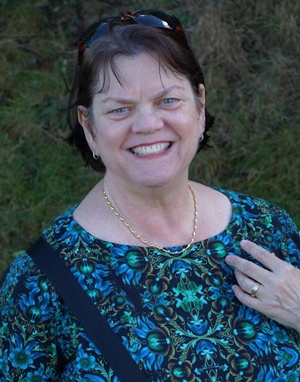Public health as a way of thinking
 Betty Wood knows that public health isn't just a career option, it's a way of thinking. Although she already had her PhD in Molecular Genetics, Betty decided to complete an Master of Public Health (MPH) at the University of Hawai‘i at Mānoa. She graduated with an MPH in Epidemiology in 1990, and her career has traversed cancer research, family planning, and maternal and infant health.
Betty Wood knows that public health isn't just a career option, it's a way of thinking. Although she already had her PhD in Molecular Genetics, Betty decided to complete an Master of Public Health (MPH) at the University of Hawai‘i at Mānoa. She graduated with an MPH in Epidemiology in 1990, and her career has traversed cancer research, family planning, and maternal and infant health.
In every job, she has seen the importance of identifying problems and answering the question, "Who is in the greatest need?" She believes that public health initiatives work best when they are aimed at pinpointing gaps and deciding the best places to put resources.
“Public health is a framework," Betty says. "It’s a way of shaping our thinking about how we understand the scope of the problem and the possible solutions.”
Currently, Betty works for the Hawai‘i State Department of Health, where she manages the CDC Prevention Block Grant, a $1.2 million grant that the state receives annually from the Centers for Disease Control and Prevention. The money must be spent on programs that are in line with the national health priorities identified by the CDC, and it's up to Betty and her team to decide how to best do that.
Betty says she is driven by her desire to look at the data from state health programs and share her insights about how the programs are working. An empiricist to her core, she finds inspiration in offering information to her team and fostering the connections between other team members, from those who design policy to those who deliver services.
A job at the UH Cancer Center is what led Betty to pursue a career in public health. Her job involved writing grants for community projects, and she began to see the problems with cancer prevention programs though a public health lens. She started thinking about how to find better ways to lower the rates of cancer in Hawai‘i communities.
Her experiences as a grad student at UH paved the way for her to engage in the analytical thinking she uses at her current job, she says. While earning her MPH, she learned how to look at data and outcomes appropriately, in order to guide the development of public health programs.
She’s also a people person. “Everyone has unique strengths and temperaments, and it is important to remember the strengths and skills of others,” she says. Her success in her work has come from aptly identifying the members of her team who have the resources needed to solve problems.
“Projects work when the changes that are needed are sanctioned by the institution,” she says. But still, “in any system, change really happens at a person-by-person level.”
